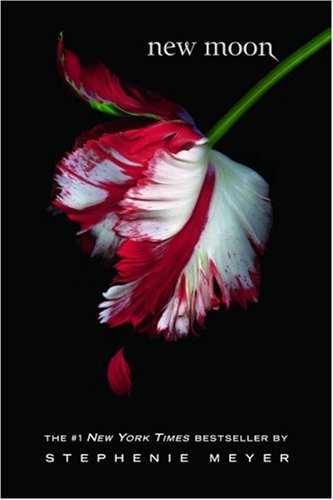All Nonfiction
- Bullying
- Books
- Academic
- Author Interviews
- Celebrity interviews
- College Articles
- College Essays
- Educator of the Year
- Heroes
- Interviews
- Memoir
- Personal Experience
- Sports
- Travel & Culture
All Opinions
- Bullying
- Current Events / Politics
- Discrimination
- Drugs / Alcohol / Smoking
- Entertainment / Celebrities
- Environment
- Love / Relationships
- Movies / Music / TV
- Pop Culture / Trends
- School / College
- Social Issues / Civics
- Spirituality / Religion
- Sports / Hobbies
All Hot Topics
- Bullying
- Community Service
- Environment
- Health
- Letters to the Editor
- Pride & Prejudice
- What Matters
- Back
Summer Guide
- Program Links
- Program Reviews
- Back
College Guide
- College Links
- College Reviews
- College Essays
- College Articles
- Back
The Twilight Series by Stephenie Meyer
By now, nearly everyone has heard of the rapidly growing sensation that is Twilight. Look around you, everywhere you turn, the faces of Edward Cullen, Jacob Black and Isabella Swan are likely to be staring back, either from a T-shirt, poster or bookmark. There is no denying the series’ popularity; this review, however, is going to focus on one piece in particular, and that is the books.
Shortly after The Twilight Series was published, its fame began to spread like a wildfire. It seemed to me that whenever I saw a novel in a classmate’s hand, there sat the red apple on the cover, in all its glory. Constantly, peers and family members were coming to me and, knowing my love of reading, they proclaimed, “I just had to read this book.” Hesitant at first, I finally broke down and gave in to my curiosity, and checked the book out at the school library. Suffice it to say that I was quite surprised at what I read – though, not pleasantly so.
Let us begin with a brief summation. The Twilight Series, written by Stephanie Meyer, is a group of books portraying a time in the life of Isabella Swan, or Bella, as she is called in the book. Bella is a teenaged girl who recently moved from the sunshine filled state of Alabama, to the ever-cloudy, and seemingly eventless, town of Forks. The series tells the story of Bella’s meeting of the Cullens, a family of immortal vampires residing Forks, and largely, her relationship with Edward, a member of the Cullen family.
Often compared to J.K Rowling’s Harry Potter series, and even to Stephen King novels, there is no doubt as to the popularity of Twilight. However, this popularity is the sole similarity to be found between them. The Twilight series is fundamentally an incredibly thin piece of literature, and I personally feel that even calling it literature is being generous.
The plot of Twilight makes up for the majority of this thinness; it is a romance story, and that is nearly all it consists of. True enough, there are rare moments of what some people call “action”, yet these are nothing more than scenes of slim playground antics, especially when compared to any other work of writing.
Sadder than the thin plot though is the fact that the romantic triangle of the story is completely unrealistic, even if you ignore that two of the triangles points are not human. The character of Bella is an overused persona of a love struck, moon-eyed girl, and she represents nothing of what a person would aspire to be in a relationship. She sees past nothing (literally, nothing) other than her desire to be with Edward, and this low ambitiousness is completely unrespectable. Jacob Black, the often ignored member of the triangle, is no better than Bella. He is willing to let Edward die - yes, you read that right – just so he can be with Bella; he doesn’t worry that he’s about to let the women he “loves” loose the most important thing to her, oh no, he just wants Bella, nothing more. Why on Earth would Meyer wish to make characters so shallow that they see nothing past their own egotistical self-gain?
The characters of Twilight, other than their obvious self-centered attitudes, were completely undeveloped ones. Be it Bella’s friends, her parents, or Jacob’s “wolfpack”, none of the supporting characters were developed enough to give readers that realistic sense of knowing; we knew that the werewolves hated the vampires, but only because we were told outright. And we knew the opinions of Bella’s friends on her relationship with Edward, but only what dialogue could reveal. Where was the subtle, unspoken development that gave great novels there richness?
Not only are Twilight’s characters and plot thin, but the vocabulary and sentence structure is incredibly unsatisfying. Perhaps it was done purposefully, but when I pick up a novel, I always hope that the vocabulary will be varied and extensive enough to provide an intellectually stimulating, yet still enjoyable experience, and the language and terminology of Twilight left a lot to be desired. Likewise, Meyer’s sentence structure was painfully unvaried, and I quickly became bored with the repetition of the organization. But who knows, perhaps the elementary level word choices were part of the motivation for the wide-spread tween fad.
All things considered, Twilight is a great read, assuming you are looking for a mind numbing piece of writing that you can use to momentarily help fill your unrealistic daydreams. If your looking for a true work of literature that will academically arouse you and deeply stir your emotions, I suggest you look elsewhere. Kudos to you Mrs. Meyer, for creating the most recent junior high bandwagon!
Similar Articles
JOIN THE DISCUSSION
This article has 41 comments.

